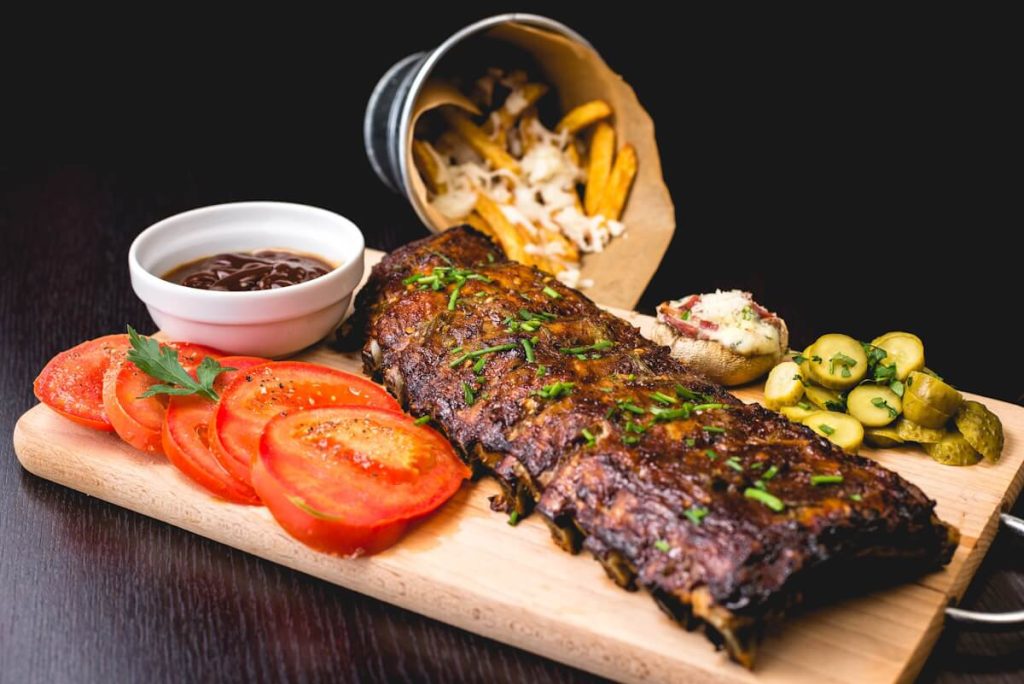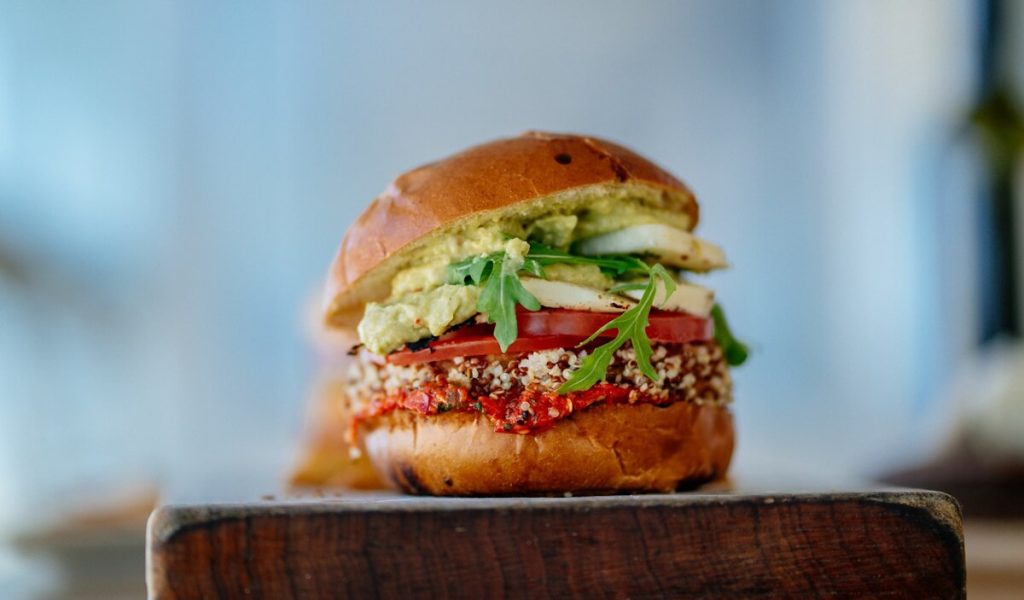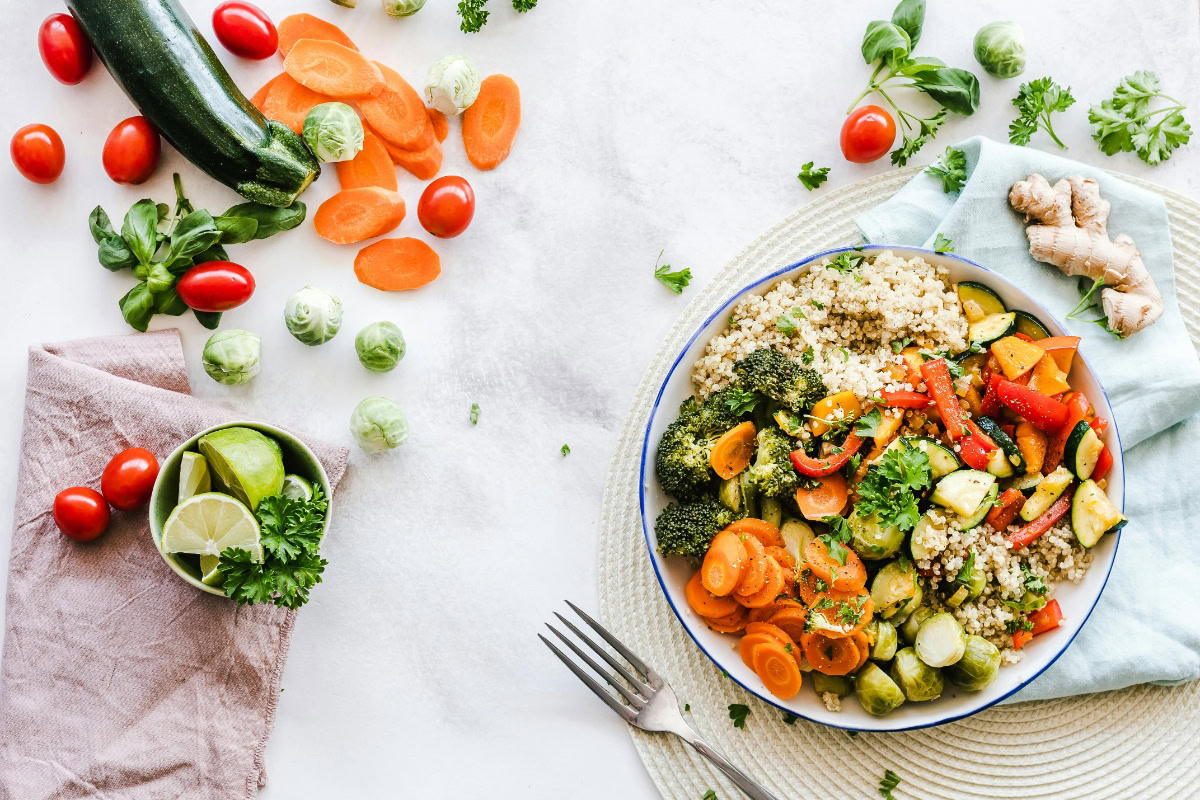The art of grilling goes beyond satisfying your taste buds with a unique, smoky flavor.
It’s a cooking method that redefines healthy eating, allowing you to extract more nutritional benefits from your meals, and making it an exciting part of a balanced diet.
Trimming Down Fat Content

Grilling has a natural way of reducing the fat content in your meals. When you grill your meat, the fat melts away during the cooking process and drips off the grates. Here’s how grilling promotes a healthier meal option:
- Natural Fat Reduction: Unlike frying or baking where the meat cooks in its own fat, grilling allows the fat to drop away, leaving you with a leaner piece of meat.
- Lower Caloric Intake: With reduced fat, grilled dishes often have fewer calories compared to the same dish when fried or roasted, making grilling a more calorie-conscious choice.
- Supporting a Balanced Diet: Lower-fat meals contribute to a balanced diet, especially beneficial for those keeping an eye on their weight or maintaining healthy cholesterol levels.
Preserving Nutritional Value
Grilling stands out as a champion in preserving the essential nutrients in your food. The short cooking time and minimal water use in grilling work to retain vitamins and minerals that might otherwise be lost in other cooking processes:
- Keeping Vitamins Intact: Grilled vegetables retain more of their vitamins, particularly those that are water-soluble, like vitamin B and C, which are often lost during boiling.
- Maintaining Essential Nutrients in Meat: Grilling helps preserve two important B-vitamins: riboflavin and thiamine, which are critical for maintaining a healthy diet as they support body growth, energy production, and other vital functions.
- Boosting Mineral Retention: Minerals like potassium, phosphorus, and zinc found in vegetables and meats are better preserved when grilled, enhancing their nutritional value.
Flavorful Meals Minus Extra Calories
One of the most exciting health benefits of grilling is the flavor it brings to your meals without the need for extra butter, oil, or heavy sauces. This helps keep your meals both delicious and nutritious:
- Unlocking Natural Flavors: The high heat of grilling caramelizes the sugars in the food, enhancing its natural flavors and reducing the need for added seasonings.
- Utilizing Healthier Marinades and Rubs: Marinating or rubbing herbs and spices onto the food before grilling imparts rich flavors without resorting to high-sodium or high-sugar sauces.
- Innovating with Smoke: Using different types of wood in your grill can infuse your food with a range of unique, smoky flavors, making your meals exciting while keeping them health-friendly.
Crafting Healthy and Delicious Grilled Burgers

Burgers, the quintessential grilled food, are often considered comfort food, and many wonder, “Are homemade burgers healthy?”
The answer is a resounding yes—if you choose the right ingredients and use healthy cooking methods.
As BBQHost has shown us, building a nutritious burger at home doesn’t require a culinary degree. It’s about smart choices and knowing where to tweak.
The Meat of the Matter
The meat you select for your burger significantly impacts its health quotient. Making wise choices can help you create a burger that’s flavorful yet nutritionally balanced:
- Select Lean Cuts: Opt for lean meats such as ground chicken, turkey, or lean beef cuts, preferably those labeled 90% lean or higher. These meats have less saturated fat, making your burger a healthier option.
- Try Fish Burgers: Consider replacing meat with fish like salmon or tuna occasionally. These offer a rich supply of heart-healthy Omega-3 fatty acids, adding a new dimension of nutrition to your burger.
- Explore Plant-Based Alternatives: For a vegetarian twist, experiment with plant-based proteins like beans, lentils, or tofu. These offer a different taste and add a variety of nutrients to your burger.
Bringing in Whole Grains
The type of bun you choose can also transform the healthiness of your burger. By incorporating whole grains, you can add a new layer of nutrition:
- Choose Whole-Grain Buns: Whole-grain buns are high in fiber, which promotes better digestion and keeps you satisfied for longer, helping to control overeating.
- Try Creative Alternatives: If you’re feeling adventurous, try using portobello mushrooms or lettuce leaves as a bun replacement. These lower-carb alternatives add a unique twist while boosting the overall nutritional profile of your burger.
Veggies: The Burger’s Best Friend

Turn your burger into a nutrient-dense meal by embracing the power of vegetables. Adding a variety of veggies can enhance both the flavor and nutritional value of your burger:
- Go Classic: Traditional options like lettuce, tomatoes, onions, and pickles add freshness, crunch, and a burst of flavors.
- Experiment with Grilled Veggies: Adding grilled veggies such as portobello mushrooms, bell peppers, or eggplants can elevate your burger’s taste and texture, while loading it with fiber, vitamins, and antioxidants.
- Think Beyond the Patty: Veggies can be part of the patty too. Ingredients like grated zucchini, finely chopped spinach, or mashed beans can enhance the nutritional content of the patty while keeping it juicy and flavorful.
Maximizing the Health Quotient of Grilling
While grilling inherently has several health benefits, adopting certain techniques can take these benefits a step further. Managing your grill’s heat, marinating your food, and diversifying your grilling menu are all ways to make your grill-out sessions even healthier.
Mastering the Art of Heat Management
One of the keys to healthy grilling is managing the heat effectively. Overcooking or charring food on the grill can lead to the formation of potentially harmful compounds. Here’s how to control the heat:
- Frequent Flipping: Flip your food regularly to prevent charring and to ensure even cooking. This not only reduces the formation of harmful compounds but also contributes to a well-cooked and flavorful dish.
- Monitor Temperatures: Use a food thermometer to ensure your food reaches the recommended internal temperature without overcooking. For instance, burgers made of ground beef should be cooked to an internal temperature of 160°F, according to the USDA.
- Avoid High Flares: High flames can overcook or burn the food quickly, increasing the risk of harmful compounds. Keep a spray bottle of water handy to manage flare-ups.
Marinating: Flavor and Health Combined
Marinating your food before grilling serves a dual purpose. Not only does it enhance flavor, but it can also reduce the formation of harmful compounds:
- Use Acidic Marinades: Marinades with vinegar or citrus juices (like lemon or lime) are not only delicious but they can also help prevent the formation of harmful compounds. These ingredients have antioxidants that inhibit these compounds from forming.
- Time It Right: Marinate your food for at least 30 minutes, or even overnight if possible. This allows the marinade to penetrate the food, boosting its flavor while also enhancing its healthiness.
Diversify Your Grill Menu
Don’t limit your grilling to just meat. Expanding your grilling menu can lead to a more diversified and nutrient-rich diet:
- Grill More Veggies: Grilled vegetables offer a delightful smoky flavor and retain more of their vitamins and minerals. Options like bell peppers, zucchinis, eggplants, and even leafy greens like kale and romaine lettuce can be delicious when grilled.
- Experiment with Fruits: Grilled fruits are a tasty and healthy way to end your meal. Try grilling peaches, pineapple, or even watermelon for a sweet and smoky dessert.
- Include Seafood: Seafood, rich in Omega-3 fatty acids, is another healthy grilling option. Fish like salmon, tuna, and shrimp are excellent choices for the grill.
Final Remarks
Firing up the grill can do more than just provide a delightful culinary experience – it can also unlock numerous health benefits.
Whether you’re grilling lean meats or crafting a nutritious homemade burger, this cooking method allows for reduced fat content, nutrient preservation, and flavor enhancement without piling on extra calories.
By applying the right techniques and making smart choices, you can turn your grilling sessions into an exciting journey towards healthier eating.





